Omicron crisis: Will your workplace mandate a booster?
Businesses are finding their own path around compulsory vaccinations and the legal tests will be felt for some time.
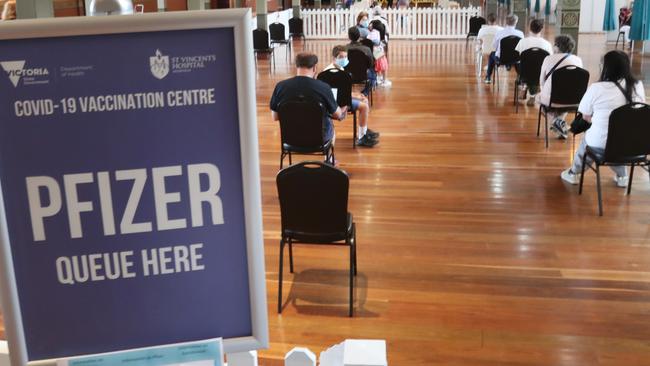
QLD Business
Don't miss out on the headlines from QLD Business. Followed categories will be added to My News.
A new front in the Covid-19 battleground is about to open.
Will the wildfire spread of the Omicron strain now push companies into requiring staff to have booster shots?
The chairman of food manufacturer SPC, Hussein Rifai, who led Australia’s first company to mandate the Covid-19 vaccination for workers, says he won’t be doing the same for the booster.
After rolling out a full vaccination policy in August, Rifai’s SPC workers have already beaten him to the third dose.
“We’re just not seeing a need for it,” Rifai says of mandating boosters. “Everybody is just going out and doing it.”
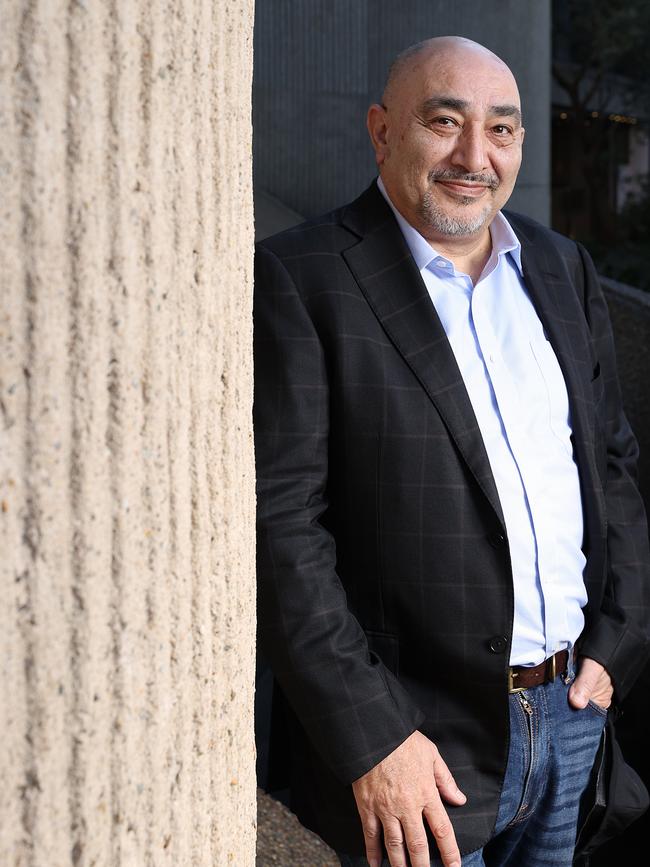
If someone has already gone to the trouble to getting two shots, “then the third one is not really a big leap of faith”, he says. Rifai got his booster shot two days before Christmas.
“It hurt for two hours and then I was fine,” he says.
More than 91 per cent of Australians over 16 have two Covid vaccination doses. The number for boosters is running at 10 per cent, although this is expected to rise quickly in coming weeks as new Covid case numbers stay high and more people become eligible.
Shortly after Rifai declared vaccines would be mandatory for SPC’s factory workforce and contractors – most who live around the central Victorian town of Shepparton – a string of businesses far bigger than SPC followed his lead. Even so, he faced a firestorm about the move from unions and a number of people outside the company.
Key names that have moved to a full or partial workforce vaccine mandate include Woolworths, Qantas, Coles, Telstra, Medibank and Virgin Australia. Others include the big miners and professional services firms PwC and Deloitte.
Several of these companies are also moving softly on the booster shot, pointing out – like Rifai – that if an employee was prepared to go the distance on the first two Covid vaccine doses, the conversion to the third will be extremely high.
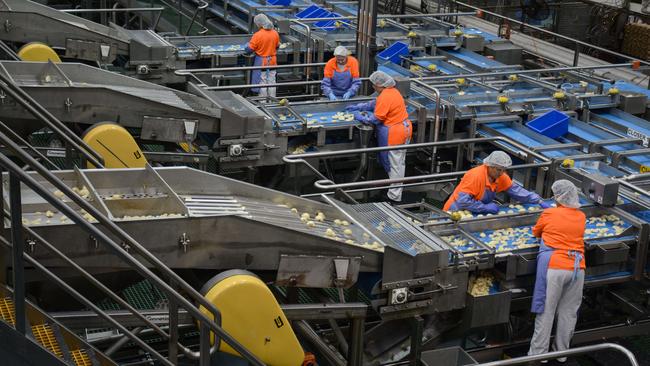
Current advice from the federal Health Department recommends booster doses to give maximum protection against Covid-19. It is not known yet if we will need booster doses on an annual or longer basis.
At this stage Canberra has only strongly recommended people working in aged care consider having a booster dose, and hasn’t shifted to a compulsory mandate for the third shot.
West Australia Premier Mark McGowan has given employers in his state – including the big miners – some protection. Days before Christmas, he introduced a mandatory booster shot policy for all workers covered by vaccine mandates.
Those covered by the rule are required to have a third dose within a month of becoming eligible, which on current health recommendations is four months.
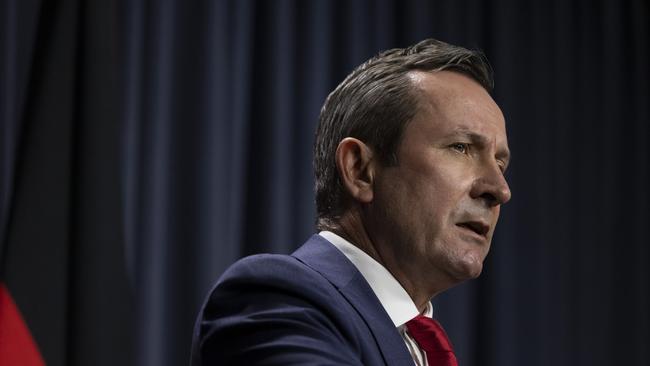
This policy extends to healthcare, education, construction workers and fly in, fly out miners scattered across remote sites around the state. This means that the likes of BHP, Rio Tinto and Fortescue are demanding their workers have boosters there, but not in operations in other parts of Australia.
Still, McGowan’s month-long time line could be ambitious, given the current national rush on boosters, which is putting a squeeze on short term supply. Nearly 12 million Australians will be eligible for their booster shot by the end of the month.
A top legal authority on workplace vaccination policies, Heinz Lepahe, a partner with law firm HWL Ebsworth, says the law is not so clear cut when it comes to booster shots.
For businesses it’s important to know that, given the status of booster shot in most states and federally, it may not be in the same legal situation as the primary Covid shot.
The key difference is that the primary shots – the first two Covid doses – were mandated by federal and state governments in some workplaces – mostly health and aged care.
“We haven’t elevated the booster yet to be part of your full vaccination profile,” Lepahe says. “That’s partly because of supply and timing issues.”
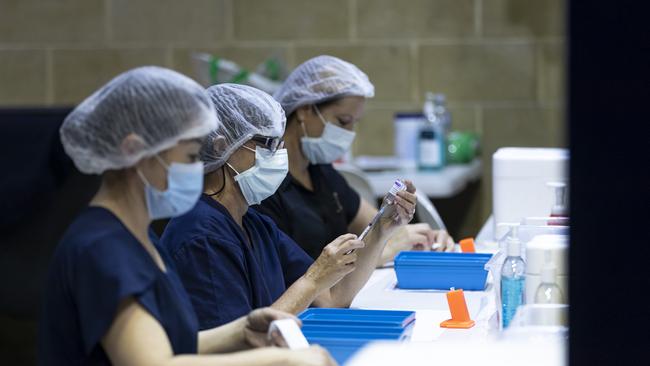
Under workplace rules, companies introducing mandatory vaccination policies are required to have consultation with their workforce before pushing ahead.
This suggests a fresh round of talks between employers and unions may be needed if anyone wants to move to a mandatory booster outside of state protections.
Lepahe says at some point boosters will be seen as part of the full vaccination course, but given the rollout is still in its early days, that is likely to be some time off.
Outside of healthcare, businesses are even now finding their own path around compulsory vaccine policy, and legal tests will be needed for some time.
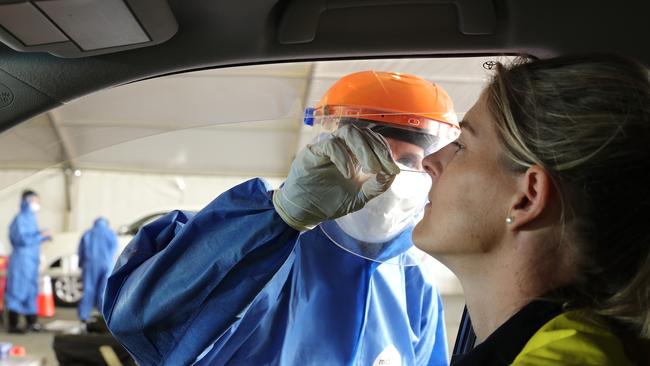
The law has tended to strongly support businesses that want to vaccinate their workforce where the workers could pose a risk to public health. This tends to come down to having a large number of customer-facing staff or businesses that have some links to healthcare.
Companies can’t just make a unilateral decision to impose a vaccine standard; they need to be prepared to make a case that the vaccine is required to keep employees and the public safe.
Several challenges to compulsory vaccination rules have already surfaced, the highest profile being mining union CFMMEU’s successful bid to oppose BHP’s demand that miners at the Mt Arthur open-cut coal mine in NSW’s Hunter Valley be fully vaccinated to work on the site.
In December the full bench of the Fair Work Commission ruled against BHP on the grounds it had not undertaken a meaningful consultation process. Had BHP done so, there would have been a strong case to move to a compulsory vaccine mandate, the ruling found.
The same pressure points will likely arise for workplaces requiring Covid test results – even rapid tests – before staff members enter a building or site.
Again, consultation will be the key, and issues will need to be thrashed out: how many tests, the frequency and who gets access to the information. The legal path is still being written and businesses are finding that they are on their own when it comes to a mandate.
More than 25,000 hate emails (and counting) later, SPC’s Rafai still says the vaccine mandate was the right thing to do. It was aimed at keeping them safe and the food producer running as the Delta strain was flaring across Victoria.
“We’re just trying to protect each other and to protect the population,” he says.
johnstone@theaustralian.com.au



